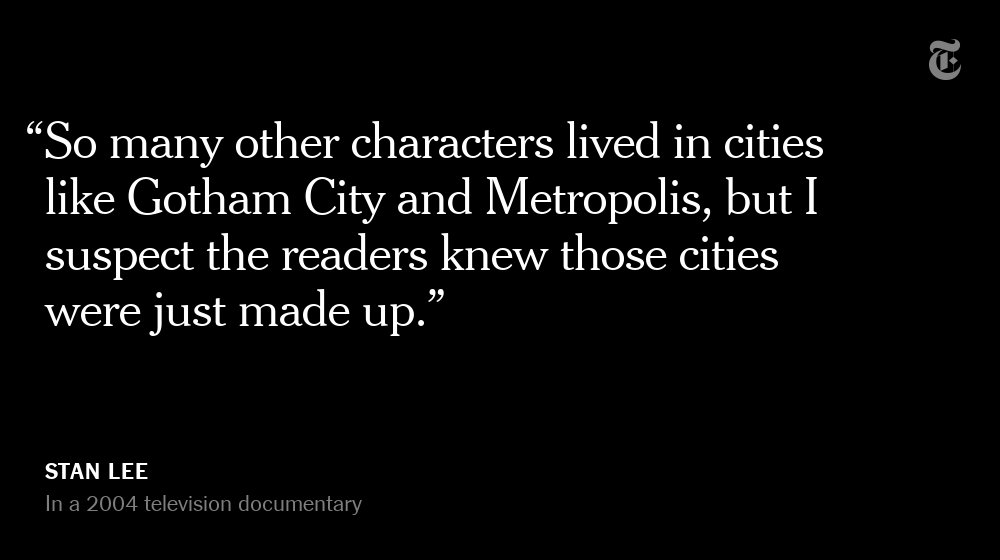More from ArmaniTalks 🎙🔥
Storytelling 101:
Your readers need to be able to empathize with your main character, otherwise they will not continue reading.
Best way to make them empathize is by making your character relatable.
'How?'
By giving your character flaws.
Make them human.
Just to add on.
Your antagonist or villian should have a desirable quality.
For example: an evil villian that has a lot of riches.
Giving your villian some pros makes the reader root for your antagonist even more.
Face it, humans are drawn to flaws over perfection.
But a main character with negative traits & a villain with positive traits creates magic.
Counterintuitive, I know.
But you are creating friction.
You are sparking dual emotions in your readers.
This will make the readers go on an emotional roller coaster.
This is just one of the many principles of storytelling
If you like stories, then sign up for my email list: https://t.co/JjtGWxvwz4
I do storytelling emails where I take my readers onto a journey from my past
If you read carefully, you will leave with many lessons for life
Your readers need to be able to empathize with your main character, otherwise they will not continue reading.
Best way to make them empathize is by making your character relatable.
'How?'
By giving your character flaws.
Make them human.
Just to add on.
Your antagonist or villian should have a desirable quality.
For example: an evil villian that has a lot of riches.
Giving your villian some pros makes the reader root for your antagonist even more.
Face it, humans are drawn to flaws over perfection.
But a main character with negative traits & a villain with positive traits creates magic.
Counterintuitive, I know.
But you are creating friction.
You are sparking dual emotions in your readers.
This will make the readers go on an emotional roller coaster.
This is just one of the many principles of storytelling
If you like stories, then sign up for my email list: https://t.co/JjtGWxvwz4
I do storytelling emails where I take my readers onto a journey from my past
If you read carefully, you will leave with many lessons for life
More from Life
You May Also Like
Stan Lee’s fictional superheroes lived in the real New York. Here’s where they lived, and why. https://t.co/oV1IGGN8R6

Stan Lee, who died Monday at 95, was born in Manhattan and graduated from DeWitt Clinton High School in the Bronx. His pulp-fiction heroes have come to define much of popular culture in the early 21st century.
Tying Marvel’s stable of pulp-fiction heroes to a real place — New York — served a counterbalance to the sometimes gravity-challenged action and the improbability of the stories. That was just what Stan Lee wanted. https://t.co/rDosqzpP8i

The New York universe hooked readers. And the artists drew what they were familiar with, which made the Marvel universe authentic-looking, down to the water towers atop many of the buildings. https://t.co/rDosqzpP8i

The Avengers Mansion was a Beaux-Arts palace. Fans know it as 890 Fifth Avenue. The Frick Collection, which now occupies the place, uses the address of the front door: 1 East 70th Street.

Stan Lee, who died Monday at 95, was born in Manhattan and graduated from DeWitt Clinton High School in the Bronx. His pulp-fiction heroes have come to define much of popular culture in the early 21st century.
Tying Marvel’s stable of pulp-fiction heroes to a real place — New York — served a counterbalance to the sometimes gravity-challenged action and the improbability of the stories. That was just what Stan Lee wanted. https://t.co/rDosqzpP8i

The New York universe hooked readers. And the artists drew what they were familiar with, which made the Marvel universe authentic-looking, down to the water towers atop many of the buildings. https://t.co/rDosqzpP8i

The Avengers Mansion was a Beaux-Arts palace. Fans know it as 890 Fifth Avenue. The Frick Collection, which now occupies the place, uses the address of the front door: 1 East 70th Street.
“We don’t negotiate salaries” is a negotiation tactic.
Always. No, your company is not an exception.
A tactic I don’t appreciate at all because of how unfairly it penalizes low-leverage, junior employees, and those loyal enough not to question it, but that’s negotiation for you after all. Weaponized information asymmetry.
Listen to Aditya
And by the way, you should never be worried that an offer would be withdrawn if you politely negotiate.
I have seen this happen *extremely* rarely, mostly to women, and anyway is a giant red flag. It suggests you probably didn’t want to work there.
You wish there was no negotiating so it would all be more fair? I feel you, but it’s not happening.
Instead, negotiate hard, use your privilege, and then go and share numbers with your underrepresented and underpaid colleagues. […]
Always. No, your company is not an exception.
A tactic I don’t appreciate at all because of how unfairly it penalizes low-leverage, junior employees, and those loyal enough not to question it, but that’s negotiation for you after all. Weaponized information asymmetry.
Listen to Aditya
"we don't negotiate salaries" really means "we'd prefer to negotiate massive signing bonuses and equity grants, but we'll negotiate salary if you REALLY insist" https://t.co/80k7nWAMoK
— Aditya Mukerjee, the Otterrific \U0001f3f3\ufe0f\u200d\U0001f308 (@chimeracoder) December 4, 2018
And by the way, you should never be worried that an offer would be withdrawn if you politely negotiate.
I have seen this happen *extremely* rarely, mostly to women, and anyway is a giant red flag. It suggests you probably didn’t want to work there.
You wish there was no negotiating so it would all be more fair? I feel you, but it’s not happening.
Instead, negotiate hard, use your privilege, and then go and share numbers with your underrepresented and underpaid colleagues. […]












